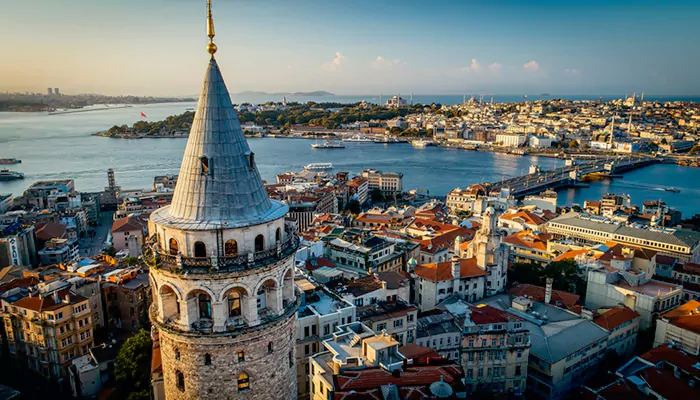Practical guide on how to plan a Euro trip on your own: Tips to keep in mind
- Rinks
- 1 year ago
- 4 minutes read

Go through to get some practical tips on planning your itinerary, managing costs, and embracing the adventure of solo travel.
Planning a trip to Europe can be an exciting yet challenging endeavour, especially when you’re organising it on your own. From choosing the countries to visit to managing budgets and booking accommodations, there’s a lot to consider. Here, we will take you through the essential steps to plan a memorable and hassle-free Euro trip, ensuring that you make the most out of your adventure. Read on!
Define your travel goals
Before diving into the logistics, it’s crucial to define your travel goals. Europe is vast and diverse, offering everything from historic landmarks and bustling cities to tranquil countryside and stunning coastlines. Start by asking yourself what kind of experiences you want. Are you drawn to iconic cities like Paris, Rome, or Barcelona, known for their rich history and vibrant culture? Or perhaps you prefer the serene landscapes of the Swiss Alps or the rustic charm of the Tuscan countryside. Maybe you're eager to immerse yourself in cultural festivals or explore the culinary delights of different regions.
Plan your itinerary
Once you have a clear vision of your travel goals, it’s time to plan your itinerary. Europe’s excellent transportation network makes it easy to visit multiple countries, but it’s essential to be realistic about what you can achieve within your timeframe. Begin by listing your must-visit places and researching the highlights and travel times between them. This will help you prioritise and organise your trip efficiently. Consider the travel time and modes of transportation—whether it’s flights, trains, or buses—between destinations. Aim to spend at least a few days in each major city or region to fully immerse yourself in the experience.
Set a Budget

Establishing a budget is a vital step in planning your Euro trip. Europe can be expensive, but with careful planning, you can manage costs and still have an amazing experience. Start by breaking down your anticipated expenses, including flights, accommodations, food, local transportation, attractions, and miscellaneous costs like souvenirs and tips. Research accommodation options ranging from budget hostels to mid-range hotels or vacation rentals to find what best suits your budget. Estimate your daily expenses for each city you plan to visit to set a realistic budget and avoid overspending.
Book accommodations and transportation
With your budget and itinerary in place, it’s time to book your accommodations and major transportation. Early bookings often provide better rates and availability, especially during peak travel seasons. Budget airlines and rail passes can be cost-effective options for travel between cities and countries. Research the local transport options within each city, as many European cities have excellent public transportation networks that are both convenient and affordable. Secure your accommodations well in advance by reading reviews and comparing prices to find the best options that fit your preferences and budget.
Plan for essentials
Ensure you have all the necessary documents and plans in place before you embark on your journey. Check the visa requirements for each country you plan to visit. Make copies of important documents, such as your passport, visa, travel insurance, and itinerary, and keep digital backups as well. This preparation will help you navigate any unexpected challenges smoothly.
Pack smart
Packing smartly can significantly enhance your travel experience and minimise hassles. Consider the seasonal clothing suitable for the weather and activities in each destination. Layers are particularly useful for dealing with varying climates. Include travel essentials such as a universal adapter, portable charger, and comfortable walking shoes. Aim to travel light, as a well-packed carry-on or a small suitcase can save you time and effort, especially when moving frequently between cities. Packing efficiently allows for easier mobility and less stress throughout your trip.
Planning a Euro trip on your own can be a rewarding and enriching experience, offering the freedom to explore at your own pace and according to your interests. By defining your travel goals, setting a budget, planning your itinerary, and preparing for essentials, you can create a memorable and enjoyable European adventure.








.webp)



